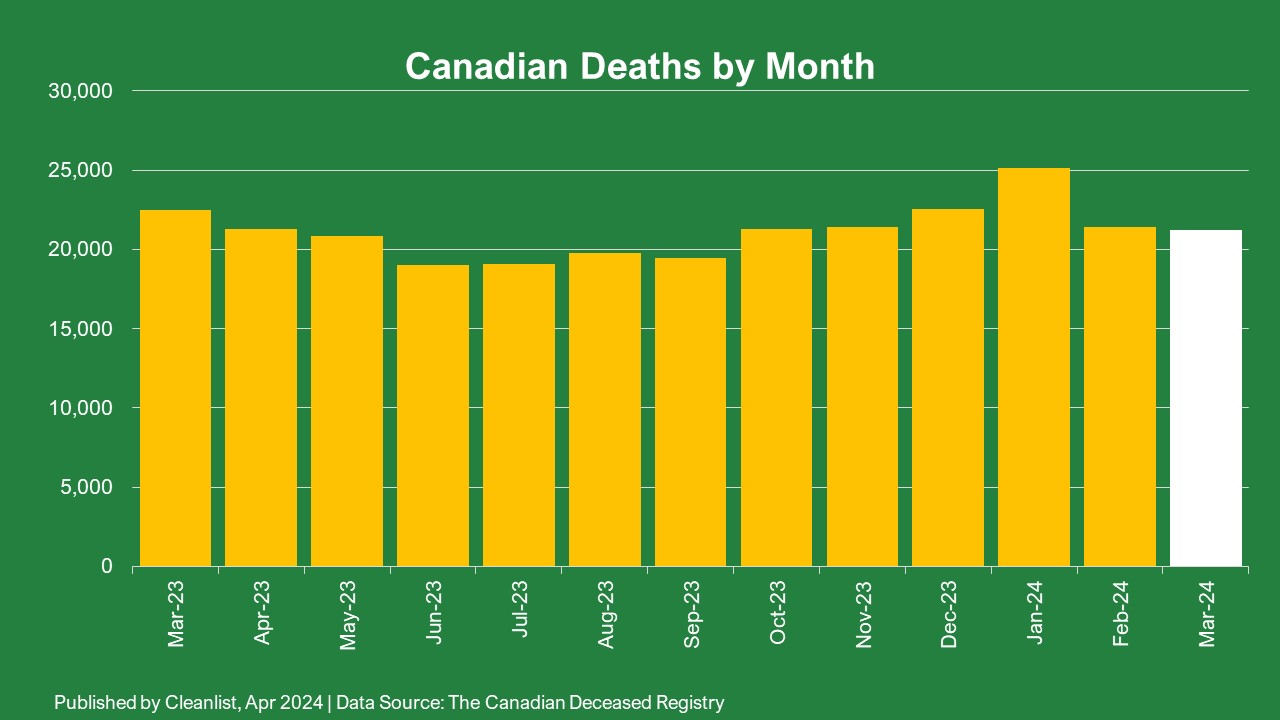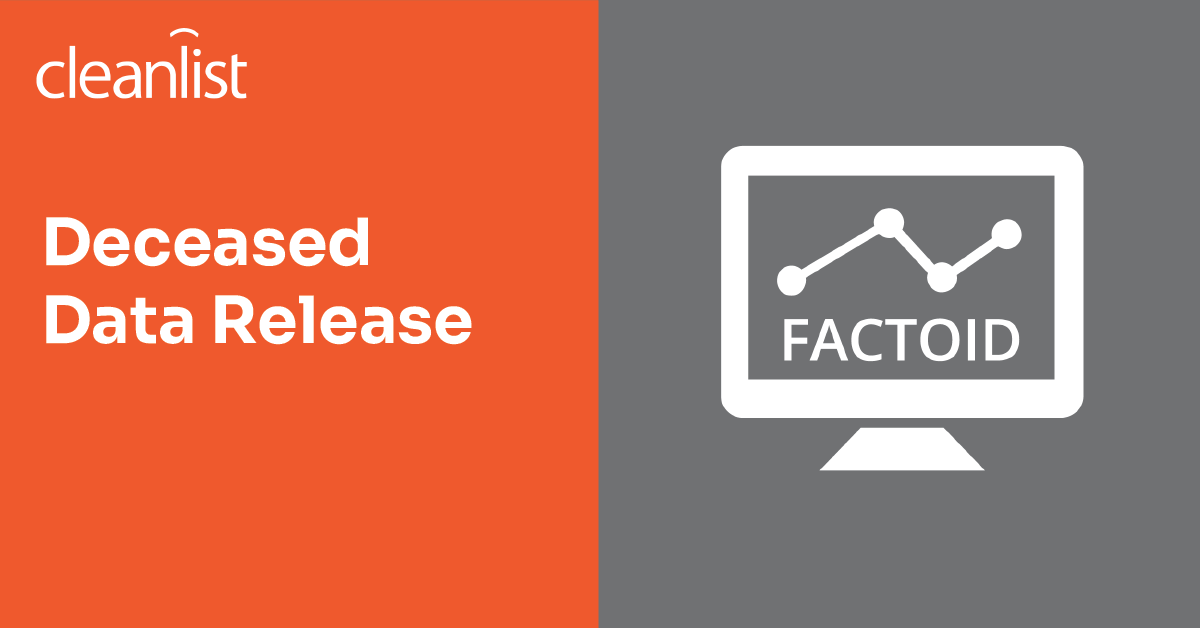
Which province has the most consistent death rate in 2024 thus far?
Cleanlist reports that 21,244 Canadians passed away in March 2024. There was a minor decrease in deaths—0.7%—month-over-month from February 2024 to March 2024 and a small 5.5% decrease from March 2023 to March 2024. The province with the most consistent death rate thus far in 2024 is British Columbia. Lastly, the average age of death in March 2024 remains at 78 years old, on par with each month thus far in 2024. This data is summarized from the Canadian Deceased Registry.
Memorable stats from March 2024:
- The only 2 provinces to see an increase in deaths from March 2023 to March 2024 were Alberta (0.05%) and Manitoba (1.8%).
- The average age of death over the last year has stayed consistently between 77 and 78 years old, resulting in no major shifts.
- The province with the most notable decrease in deaths from March 2023 to March 2024 was New Brunswick with a decrease of 14.4% and the province with the most notable decrease in deaths from February 2024 to March 2024 was Newfoundland at 11.5%.
- The province with the biggest shift in death rates thus far in 2024 has been P.E.I. with a continual decrease in numbers since January.

What factors might be contributing to fewer deaths per month in each province as we continue 2024?
There are a myriad of reasons one could speculate about why death rates are continuing to go down in each province. One factor to consider is that the beginning of the year often begins with a higher uptick in illness due to the increase in social gatherings that commence at the end of each year. Oftentimes this will continue to spread through the colder months of the year, however, many areas of Canada experienced a rather minor winter which led to more opportunities for outdoor activities. Gathering outdoors helps decrease the spread of diseases and participating in outdoor activities often leads to a positive shift in mood, reducing depression or anxiety.
How Is Canadian Deceased Data Used?
There are many ways organizations can effectively utilize mortality data. Here are the top 3.
#1 – Fraud Protection
In 2022, the Royal Canadian Military Police (RCMP) reported that there were 19,560 counts of identity theft in Canada amounting to $146 million in losses. Fraudsters will often exploit deceased individuals’ information to create false identities and engage in illicit transactions. They are expecting fraud activities to increase in 2023 and 2024.
Credit issuers can protect themselves by cross-referencing new applicant information against the Canadian Deceased Registry.
#2 – Policy Over-Payments
Pension funds and some annuity insurance policies make benefit payments to their policyholders to the date of death. When the death is not reported, or when the reporting is delayed, significant over-payments occur.
Payors can reduce over-payments and improve administrative efficiency by regularly scanning their payee population against the Canadian Deceased Registry.
#3 – Marketing & Reputation Management Mishaps
Organizations involved in marketing communications, fundraising, and customer relations can find themselves in an awkward and unpleasant situation by attempting to solicit deceased family members. This damages valuable brand reputations.
Marketing and CRM managers can avoid these situations by scrubbing their campaign lists against the Canadian Deceased Registry.
About the Data
The data presented in this report was summarized by Cleanlist from the Canadian Deceased Registry, Canada’s only national registry of deceased Canadians. To learn more about the database or for licensing information:
Cleanlist is Canada’s largest customer data company. We clean, enrich, and validate business and consumer data. We’re also experts in data-driven document composition and Canada’s largest data provider for digital and offline marketing. To learn more, visit us at Cleanlist.ca.




